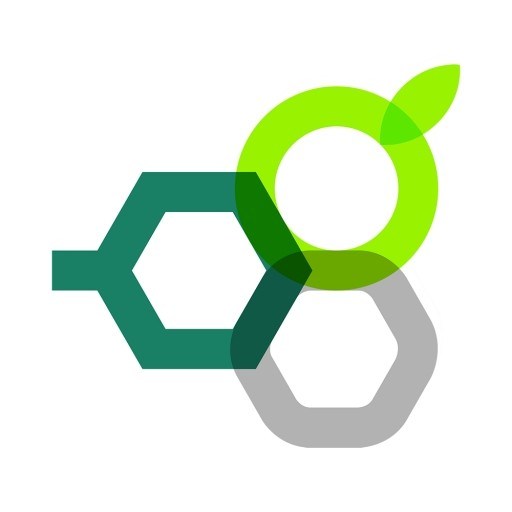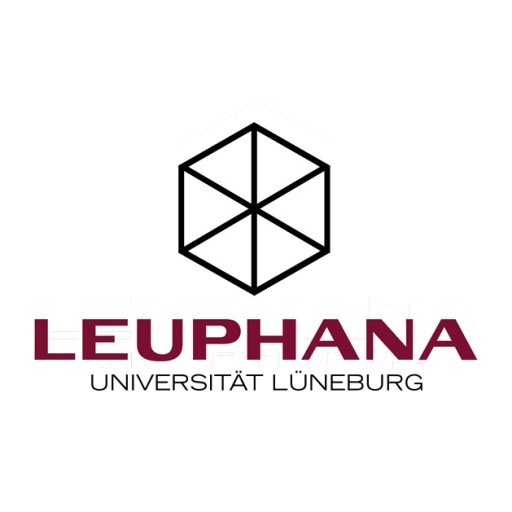Photos of university / #unigoettingen
Specialisation in "International Agribusiness and Rural Development Economics"
This profile trains students to analyse socio-economic interactions between individuals, resources and markets in agriculture using up-to-date quantitative and qualitative methods. Students acquire the tools they need to contribute to the provision of answers to vital questions ranging from the macro-level (e.g. global hunger, the world trade system) to the meso-level (e.g. the structure and performance of national and international food chains; food safety and quality issues) and the micro-level (e.g. the efficiency of agricultural production, participation and poverty at the household level) in agricultural systems. You are taught by staff from Göttingen and Kassel-Witzenhausen who represent the largest group of internationally recognised and internationally active agricultural economists in Germany (14 professors and many postdocs and lecturers). This enables us to provide you with specialised, cutting-edge teaching and supervision, and thus prepare you for exciting careers in research, business, national and regional governments and administration, and international organisations.
Specialisation in "International Organic Agriculture"
This profile offers students the unique possibility to focus entirely on Organic Agriculture. It includes the broad range of thematic fields from soil, crop and animal science, but also environmental, social and economic science. You will be asked to: examine and assess the validity of literature from the natural and social sciences, statistics and other documents; use state-of-the art statistical techniques to analyse "hard" and "soft" data; apply laboratory methods, technical procedures and qualitative/quantitative approaches of data collection; interpret and display research data; apply your skills in the context of international and organic agriculture and assessment of agroecosystems. The faculty of Organic Agricultural Sciences at Kassel-Witzenhausen provides a team of professors and lecturers with more than 20 years of experience in this unique field. Practical facilities, i.e. research greenhouse, research farm of 340 ha, various laboratories and adequate IT equipment, support individual study profiles. Our aim is to educate young people who will be leaders in science, policy and development, contributing to a more resource-efficient and sustainable development of agriculture worldwide.
Specialisation in "Tropical Agricultural and Agroecosystems Sciences"
This profile aims to qualify students to become open-minded, well-trained professionals in sustainable agricultural land use of integrated tropical and subtropical agro-ecosystems. A wide range of modules in soil, plant, animal and socio-economic sciences as well as method-oriented classes confer skills for in-depth analysis, understanding and possible modification of existing farming systems in the wake of a need for a resource-efficient production of agricultural goods that responds to the challenges of population growth, globalisation and climate change in a site-specific way. A bi-annual, two-week excursion to a tropical country (e.g. Oman, Mexico, Kenya, or Thailand), and participation in ongoing, long-term field research projects of different faculty members allow you to test-apply your skills under real conditions while collecting credits. The agricultural faculties of Göttingen and Kassel-Witzenhausen have a long-standing history of research in (sub)tropical countries, and their internationally recognised staff provide you with up-to-date teaching and mentoring as well as scientific guidance. In this way you will be well prepared for challenging jobs in research and development organisations, input, production and output sectors of agricultural commodities, and at the level of national and regional governments and administration in an international context.
Educational organisation
The two-year MSc programme Sustainable International Agriculture (SIA) is a joint study programme of the agricultural faculties of the Universities of Göttingen and Kassel-Witzenhausen. The programme is aimed at German and international students of agriculture and related disciplines. The programme leads to a Master of Science in Sustainable International Agriculture. The degree is accepted internationally and qualifies students to progress to a PhD.The study programme is internationally-oriented and offers three possibilities for specialisation (profiles): International Agribusiness and Rural Development Economics, International Organic Agriculture, and Tropical Agriculture and Agroecosystems Sciences. After individual counselling with an academic adviser, students select one field of specialisation and develop their study plan for the first eighteen months of studies.
Teaching focuses on basic methodology, specialised knowledge in the major subjects, capability for interdisciplinary research, and improvement of oral and written communication and presentation skills. Each student will be supported by two members of the teaching staff in the design, implementation, analysis and writing up of the research project. The MSc programme targets highly-qualified, internationally-oriented students of all nationalities who wish to pursue a career in the field of international agricultural and rural development in state, research and non-governmental institutions, agribusiness firms and other private sector institutions.
Specialisation in "International Agribusiness and Rural Development Economics"
Four compulsory modules must be taken (24 ECTS): Sustainable International Agriculture, World Agricultural Markets and Trade, Econometrics I, Socioeconomics of Rural Development and Food Security. Five mandatory modules (30 ECTS) must be chosen (among these, at least one methodological module). Six elective modules (36 ECTS) are to be chosen (elective modules can also be chosen from the list of mandatory modules not attended so far).
Specialisation in "International Organic Agriculture"
One bridging module and four compulsory modules must be taken (upon application, the bridging module can be skipped if past academic achievements testify to respective knowledge): Soil and Plant Science (bridging module), Sustainable International Agriculture, Organic Livestock Farming under Temperate and Tropical Conditions, Organic Cropping Systems under Temperate and (Sub)Tropical Conditions, Applied Statistical Modelling (30 ECTS). Four mandatory modules (24 ECTS) must be chosen (among these, at least one methodological module). Six elective modules (36 ECTS) are to be chosen (elective modules can also be chosen from the list of mandatory modules not attended so far).
Specialisation in "Tropical Agricultural and Agroecosystems Sciences"
One bridging module and four compulsory modules must be taken (upon application, the bridging module can be skipped if past academic achievements testify to respective knowledge): Soil and Plant Science (bridging module), Sustainable International Agriculture, Tropical Animal Husbandry Systems, Crops and Production Systems in the Tropics, Applied Statistical Modelling (30 ECTS). Four mandatory modules (24 ECTS) must be chosen (among these, at least one methodological module). Six elective modules (36 ECTS) are to be chosen (elective modules can also be chosen from the list of mandatory modules not attended so far).
The last six months consist of field research and data acquisition in Germany or abroad followed by data analysis and evaluation and the completion of a Master's thesis (in English, by arrangement in other official languages of the EU). Once the thesis has been completed, it must be defended in a colloquium.
Study abroad unit(s)
There is no compulsory study abroad period, but students can arrange a semester abroad.Students of the profile "International Agribusiness and Rural Development Economics" may choose to take part in an exchange programme with our partner university in Chile.
Most students choose to do the research for their Master's thesis abroad in one of several research projects of the faculty members worldwide.
Internships
NoneForms of assessment
The Master's programme consists of 15 modules with six ECTS each; a Master's thesis in the sixth semester with 24 ECTS; colloquium with six ECTS. There are exams (oral, written or seminar presentation with submission of a report) at the end of each module. One module lasts one semester.Course objectives
The SIA study programme will contribute to the sustainable production of agricultural commodities and food security at specific locations and in an international context. SIA students will be able to:- understand the ecological interactions of natural and agrarian systems in a global context
- acquire up-to-date knowledge in natural and socioeconomic sciences
- obtain social and methodical skills
- apply the acquired knowledge and skills in an international context concerning (organic) agriculture
- participate in the worldwide development of resource-efficient agricultural production
Language requirements
Applicants whose first language is not English have to prove a good working knowledge of English. Their proficiency in English must be certified in an internationally recognised test. The following tests and levels are accepted:- Cambridge Certificate in Advanced English at least with grade B
- Cambridge Certificate of Proficiency in English at least with grade C
- International English Language Testing System (IELTS) with at least 6 points
- At least 550 points in a paper-based TOEFL (Test of English as a Foreign Language)
- At least 213 points in a computer-based TOEFL (Test of English as a Foreign Language)
- At least 80 points in an Internet-based TOEFL (Test of English as a Foreign Language)
- UNIcert level III
- C1 certificate of CEF (Common European Framework)
Academic requirements
Successful applicants must have received an above-average (minimum is second-class upper division) or, preferably, a good grade in their undergraduate degree (BSc) of at least six semesters in agricultural sciences or a related study field. Only APS-proven (https://www.aps.org.cn/studium-in-deutschland) Chinese, Mongolian and Vietnamese academic transcript and degree certificates are accepted for application.Please see admission regulations at http://www.uni-goettingen.de/en/122863.html.
Prior to filling in the application form, each applicant must register online at http://www.uni-goettingen.de/en/122864.html.
Enrolment fees
Enrolment fees are approx. 300 EUR per semester. Fees include a pre-paid semester ticket which entitles students to use regional trains free of charge within the federal states of Lower Saxony and Bremen, as well as city buses. Students of the University of Göttingen receive discounts for cultural events. Meals and drinks are also available at reduced prices at all university canteens.http://www.uni-goettingen.de/fee
Costs of living
The cost of living in Göttingen and Witzenhausen is modest compared to most university cities in Germany. Approx. 800-850 EUR per month are currently required (for accommodation, food, health insurance, books, etc.).Job opportunities
For international students with little or no knowledge of the German language, there are very limited options regarding job opportunities.Arrival support
The International Office provides a complimentary pick-up service ("Buddy Exchange Service") from Göttingen railway station to the accommodation. German students help newly arrived students to adapt to the university and the city during their first weeks. There is also an orientation week for new international students, which provides valuable information about Göttingen and the university.Students should plan to arrive no later than mid-September. During the period before lectures commence, the faculties in Göttingen and Witzenhausen, through the student advisory service of the MSc programme, will provide administrative support to students in obtaining residence permits, accommodation and health insurance. Additionally, a guided tour of the universities of Göttingen and Witzenhausen will be organised during the first week of the semester.
Services and support for international students
The International Office assists international students with all administrative questions regarding their stay in Germany, e.g. enrolment, visa, foreigners' registration office, health insurance and financing of their studies. Furthermore, it features a broad cultural programme, e.g. international cultural evenings, language workshops, theatre courses, films, dance classes, theatre and opera visits. Trips to various tourist destinations in Germany are offered throughout the year.Accommodation
Students can choose to live in Witzenhausen or in Göttingen. It is recommended that students of "International Organic Agriculture" live in Witzenhausen and students of "International Agribusiness and Rural Development Economics" and "Tropical Agricultural and Agroecosystems Sciences" live in Göttingen.In Göttingen, the International Office, in collaboration with the "Studentenwerk", helps students to find accommodation. Many international students live in student residence halls. The residence halls have single apartments or shared apartments with individual rooms. There are also apartments available for couples and families with children.
In Witzenhausen, the International Office of the Faculty of Organic Agricultural Sciences and the "Studentenwerk" of the University of Kassel offer service and support, and will help students to find accommodation.







